In today’s fast-paced world, more and more people are experiencing physical symptoms that seem to have no medical explanation. You may have heard of conditions like chronic pain, irritable bowel syndrome (IBS), or fibromyalgia—these are often referred to as medically unexplained syndromes (MUS). But what happens when doctors can’t find anything wrong in medical tests?
For many people, this leads to frustration, fear, and confusion. How can they be feeling so much pain or discomfort without any clear diagnosis? The answer lies in understanding the powerful connection between the mind and body. Often, psychological factors can manifest as real physical symptoms, and this is what we call psychogenic causes.
This blog will explore how psychogenic causes can lead to real physical symptoms that don’t show up on medical tests. We’ll also discuss how these conditions are understood in psychiatry and how somatic symptom disorder (SSD) helps explain many of these puzzling experiences. Let’s break this down in simple, relatable terms, with examples that could resonate with you or someone you know.
What Are Medically Unexplained Syndromes (MUS)?
Medically unexplained syndromes, or MUS, are conditions where a person experiences real physical symptoms that can’t be explained through traditional medical tests. Common examples include:
- Chronic pain (especially in the muscles or joints)
- Fibromyalgia
- Irritable bowel syndrome (IBS)
- Chronic fatigue syndrome
Despite extensive testing, doctors might find nothing wrong in these cases, but the suffering is real. These symptoms often affect people’s lives in very significant ways, leading to difficulties in work, relationships, and daily activities. However, without a clear medical cause, many patients are left feeling confused, dismissed, or even hopeless.
But there’s a reason these symptoms happen, and understanding the role of the mind is the first step toward finding relief.
How Can Psychological Factors Cause Physical Symptoms?
One of the biggest challenges with medically unexplained syndromes is understanding how psychological or emotional issues can cause real, physical pain. This is where the term psychogenic comes in—it refers to physical symptoms that arise due to psychological causes.
Stress: A Major Trigger
Stress is one of the most common psychogenic triggers. When the body experiences stress, it activates a system known as the hypothalamic-pituitary-adrenal (HPA) axis. This system releases stress hormones that can affect many parts of the body, such as the immune system, digestion, and nerves.
Imagine a young student named Anuj from Mumbai. He’s getting ready for his final exams and feels a lot of pressure to perform well. Soon, he starts feeling stomach cramps and nausea—even though he hasn’t eaten anything bad. After the exams, these symptoms persist. Anuj visits a doctor, but all the tests come back normal. What’s happening here?
Anuj’s stress from his exams has triggered physical symptoms, even though there is nothing wrong with his stomach. This is a classic example of how psychological stress can manifest as physical symptoms, a common scenario in MUS.
The Mind’s Influence on the Body: Amplifying Sensations
People with medically unexplained syndromes often experience a phenomenon called somatosensory amplification. This means that they become more aware of normal bodily sensations and may interpret them as more intense or painful than they actually are.
Let’s say someone feels a slight ache in their shoulder after a workout. For most people, this discomfort would fade away. But for someone with MUS, this minor pain might feel far more severe. Their brain amplifies the sensation, making it feel much worse than it is. This is not something they are imagining—this is how their brain is processing those signals.
In fact, the brain plays a huge role in how we experience pain and other sensations. If you’re constantly worried that something is seriously wrong with your body, this fear can actually make the symptoms worse. Over time, this can create a cycle of pain, worry, and more pain.
Health Anxiety and the Fear of Illness
Another major factor in medically unexplained syndromes is health anxiety. People with health anxiety tend to be overly concerned about their health, constantly worried that they have a serious illness. Every small ache or sensation can be blown out of proportion, leading to even more anxiety.
For example, Ravi, a 38-year-old man from Delhi, feels sharp pain in his chest one day. He immediately fears he’s having a heart attack. He rushes to the hospital, where doctors perform several tests, only to find that his heart is perfectly healthy. But the pain persists, and Ravi becomes more anxious with each passing day, convinced that something is wrong.
In this case, Ravi’s health anxiety is fueling his physical symptoms, even though his body is fine. The more anxious he becomes, the more intense his symptoms feel.
A Closer Look: The Story of Priya
Let’s take the example of Priya, a 30-year-old mother of two from Chennai. After her second child was born, she started feeling chronic fatigue and muscle pain. She was always tired, even after sleeping for 8 hours, and her body ached all over. Priya visited multiple doctors, but none of them could find a clear reason for her symptoms.
Despite the lack of a diagnosis, Priya’s pain was real. The constant fatigue made it difficult for her to care for her children, and she became frustrated with the lack of answers. Priya’s condition is a common example of somatic symptom disorder (SSD), where the emotional stress of daily life can lead to real, physical symptoms. Even though no physical cause was found, Priya’s mind was contributing to her chronic pain.
What Is Somatic Symptom Disorder (SSD)?
Somatic symptom disorder, or SSD, is a term used in psychiatry to describe situations where a person experiences physical symptoms that are either caused or worsened by psychological factors. The physical symptoms may not always have a medical explanation, but the emotional distress caused by them is very real.
According to the Diagnostic and Statistical Manual of Mental Disorders (DSM-5), SSD is characterized by:
- One or more physical symptoms that cause significant distress
- Excessive thoughts, feelings, or behaviors related to these symptoms
- Ongoing worry about the symptoms, even after reassurance from doctors
For people with SSD, their focus on their symptoms and their fear of illness can make their physical pain much worse, even if there’s no medical reason for it.
Psychogenic Pain: When the Mind Causes Physical Pain
Psychogenic pain is a type of pain that has no physical cause, yet it feels very real. It can happen because of emotional or psychological issues, such as stress, anxiety, or depression.
Let’s look at the case of Ravi, a 45-year-old man who experiences chronic back pain. Despite seeing multiple doctors and undergoing tests, nothing physically wrong with his spine is found. The pain doesn’t go away, and it starts to take a toll on his daily life. Ravi is under a lot of stress at work, and his anxiety about job security is causing his back pain to intensify. This is an example of psychogenic pain, where emotional distress manifests as physical pain.
Studies have shown that people with psychogenic pain often have something called central pain amplification, meaning their brain becomes overly sensitive to pain signals. Even minor aches can feel unbearable because the brain is processing them in a heightened way.
Why Diagnosing MUS Can Be So Difficult
One of the hardest things about medically unexplained syndromes is the lack of clear medical tests to confirm the condition. Doctors often run tests and find that everything seems normal, which can leave patients feeling frustrated and dismissed.
Take Aarti, a 50-year-old woman from Kolkata who has been dealing with chronic headaches for years. She’s seen multiple specialists, but no one can find a physical cause. Without a clear diagnosis, Aarti feels hopeless, wondering if anyone will ever understand her pain.
For patients like Aarti, the journey to diagnosis can be long and difficult. Traditional medical approaches often don’t provide answers, leading to emotional distress and a sense of helplessness.
A Holistic Approach: The Biopsychosocial Model
To truly understand medically unexplained syndromes, doctors are now turning to the biopsychosocial model. This model looks at the interaction between biological, psychological, and social factors to explain these conditions.
- Biological factors include genetic predispositions, hormonal changes, or nerve sensitivity.
- Psychological factors include stress, anxiety, and emotional trauma.
- Social factors include cultural pressures, family dynamics, or work stress.
By considering all these elements, doctors can create more comprehensive treatment plans that target not just the symptoms but also the underlying causes.
How Are Medically Unexplained Syndromes Treated?
Because of the strong psychological component in medically unexplained syndromes, treatment often involves psychological therapy in addition to managing physical symptoms. One of the most effective treatments is cognitive-behavioral therapy (CBT). CBT helps patients change the way they think about their symptoms and reduces the anxiety that can make the symptoms worse.
For example, in Priya’s case, CBT could help her recognize that her muscle pain isn’t necessarily a sign of a serious illness but may be linked to emotional stress. By changing her thought patterns, Priya can start to feel more in control of her body and reduce her overall distress.
Other treatments might include:
- Mindfulness and relaxation exercises to reduce stress
- Physical therapy to manage chronic pain and improve movement
- Medications, like antidepressants or pain relievers, in some cases
Empathy and Understanding: The Key to Healing
One of the most important aspects of treating medically unexplained syndromes is empathy. Many patients with MUS feel that they are not being taken seriously or that their pain is dismissed as “all in their head.” This can lead to even more distress. Listening to the patient and validating their experience is crucial in the healing process.
In India, where mental health awareness is still growing, it’s important to break the stigma surrounding these conditions. Patients like Aarti and Ravi should feel encouraged to seek psychological help when necessary, without feeling ashamed or embarrassed.
Conclusion: A Journey Toward Healing
Medically unexplained syndromes may seem mysterious, but by understanding the mind-body connection, we can begin to unravel the causes. Conditions like chronic pain, irritable bowel syndrome, and fibromyalgia are not “imagined” illnesses—they are real, and they are often triggered by psychological factors.
By taking a holistic approach that addresses both the body and the mind, patients can find relief from their symptoms. The journey might be challenging, but with the right treatment and support, healing is possible.
TAGS: IBS, SSD, MUS, chronic fatigue , Biopsychosocial Model
Disclaimer:
All characters and events depicted in this blog are entirely fictional. Any resemblance to actual persons, living or dead, is purely coincidental. The content is intended for informational purposes only and should not be considered as medical advice. Always consult a qualified healthcare professional for medical concerns.
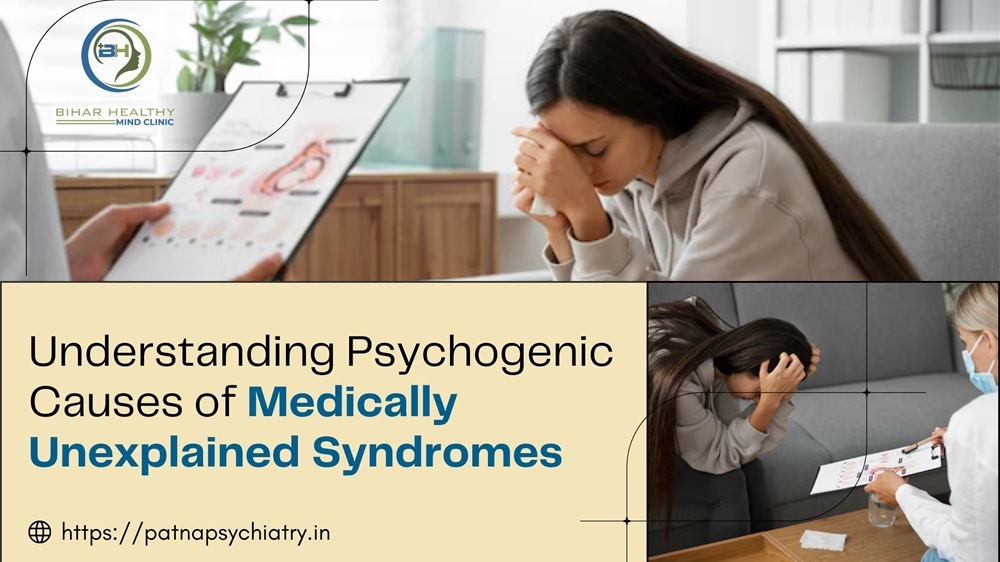

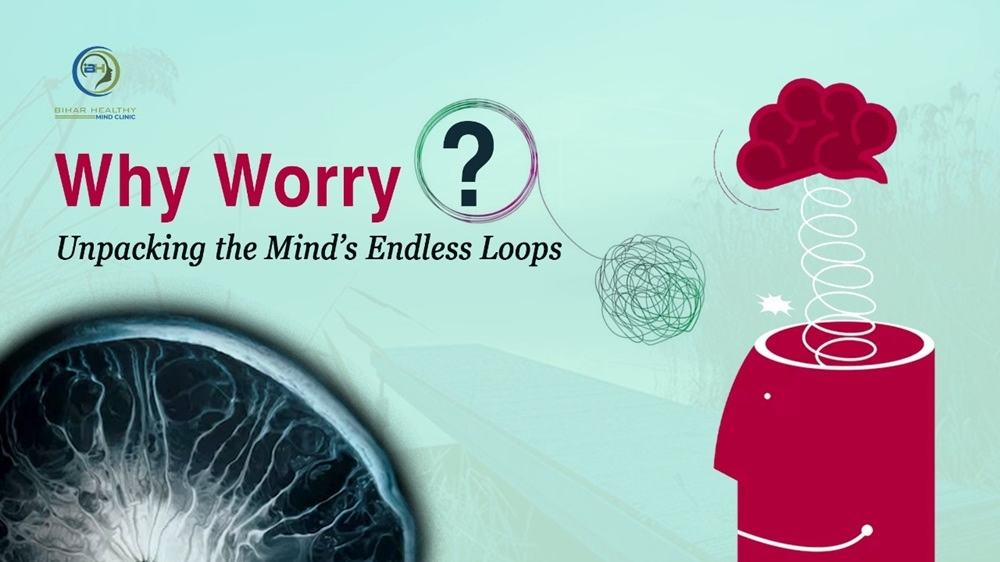
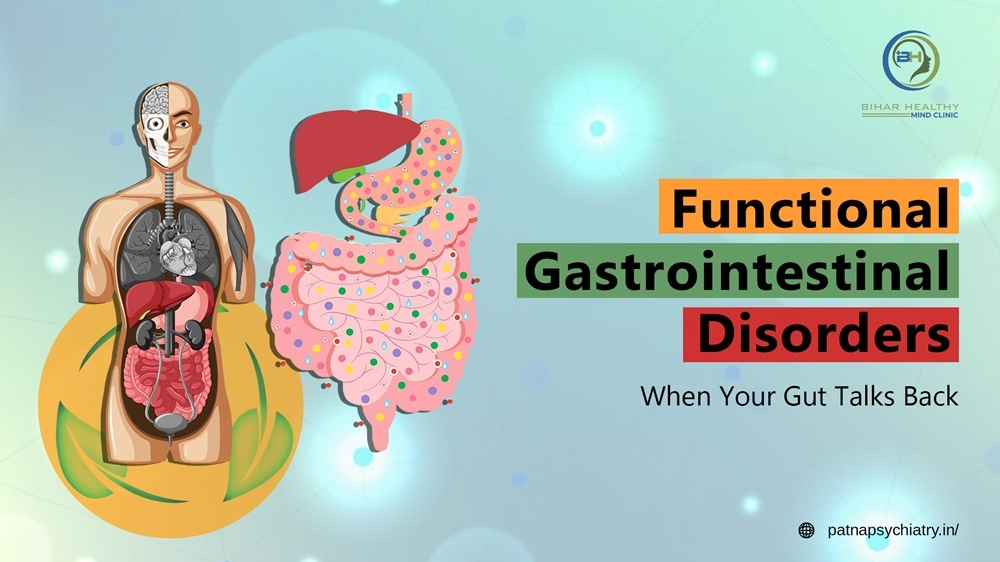
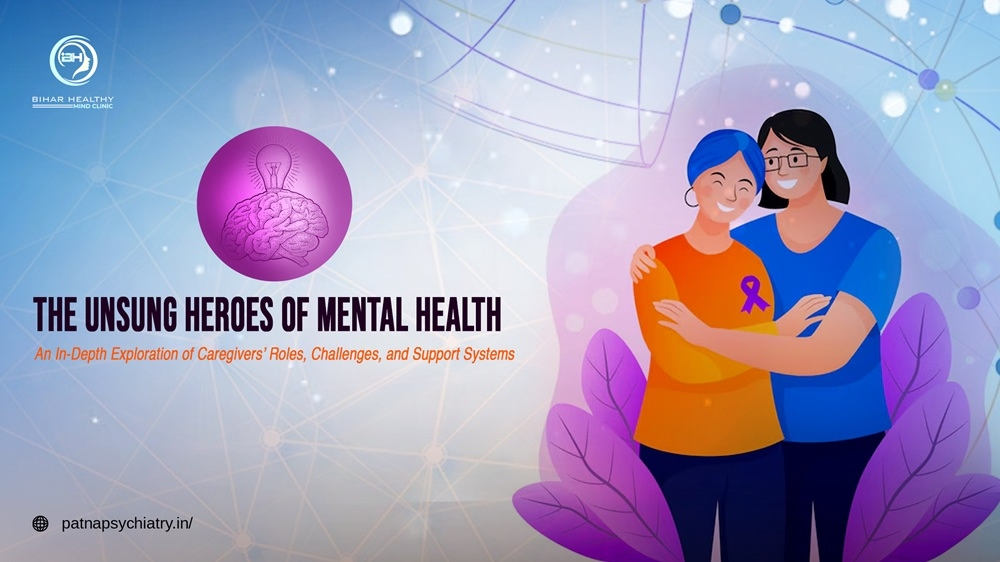
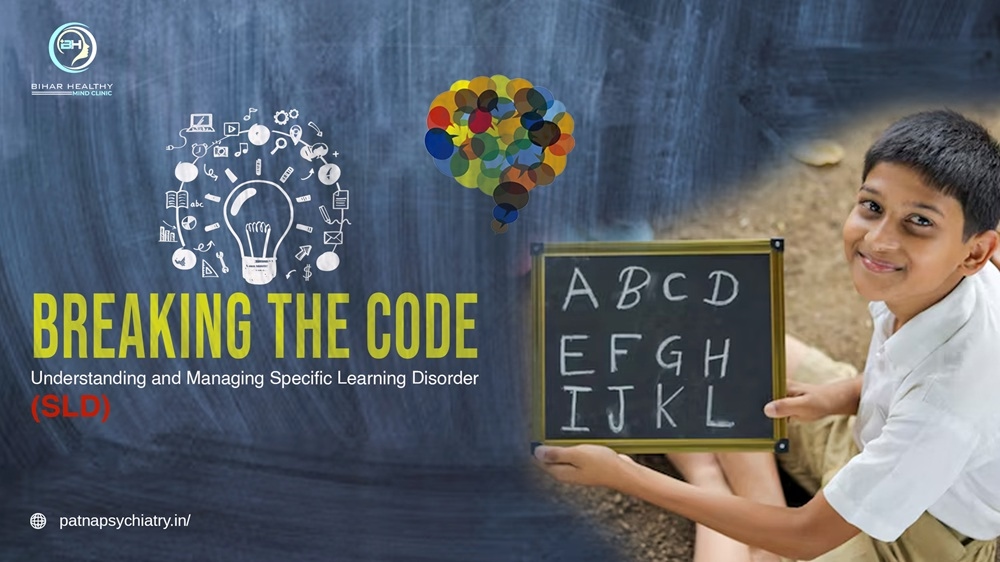
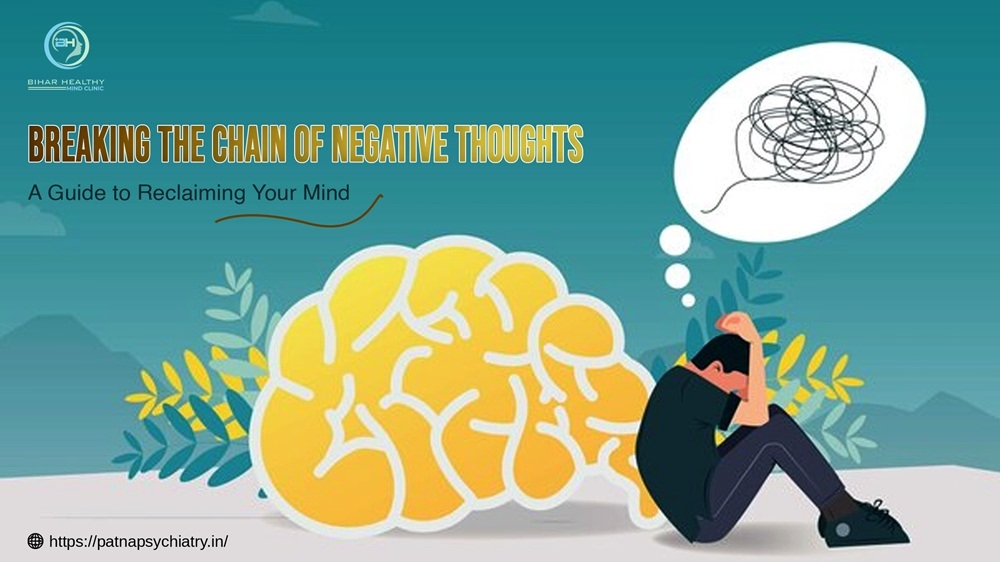
No comments yet. Be the first to comment!